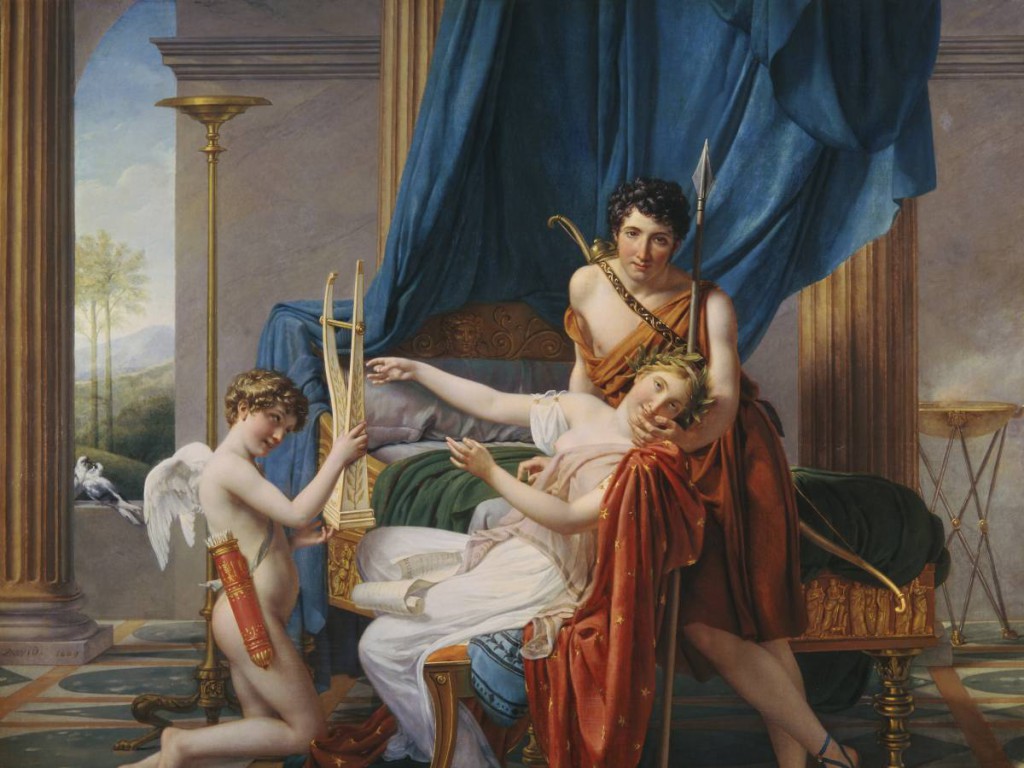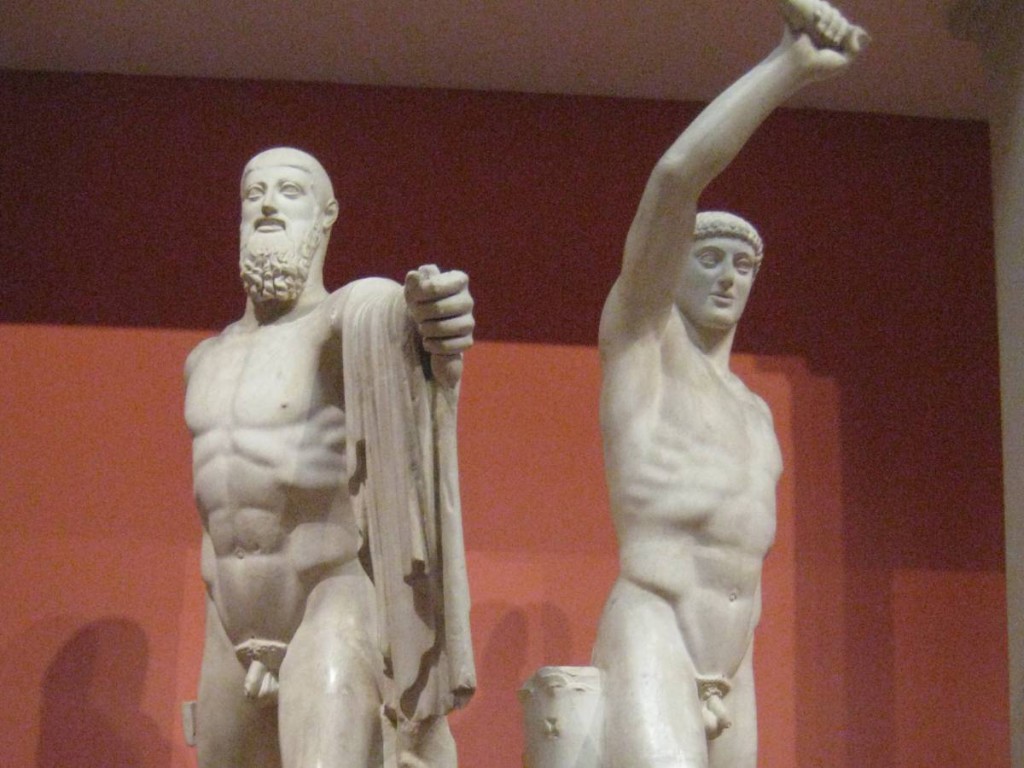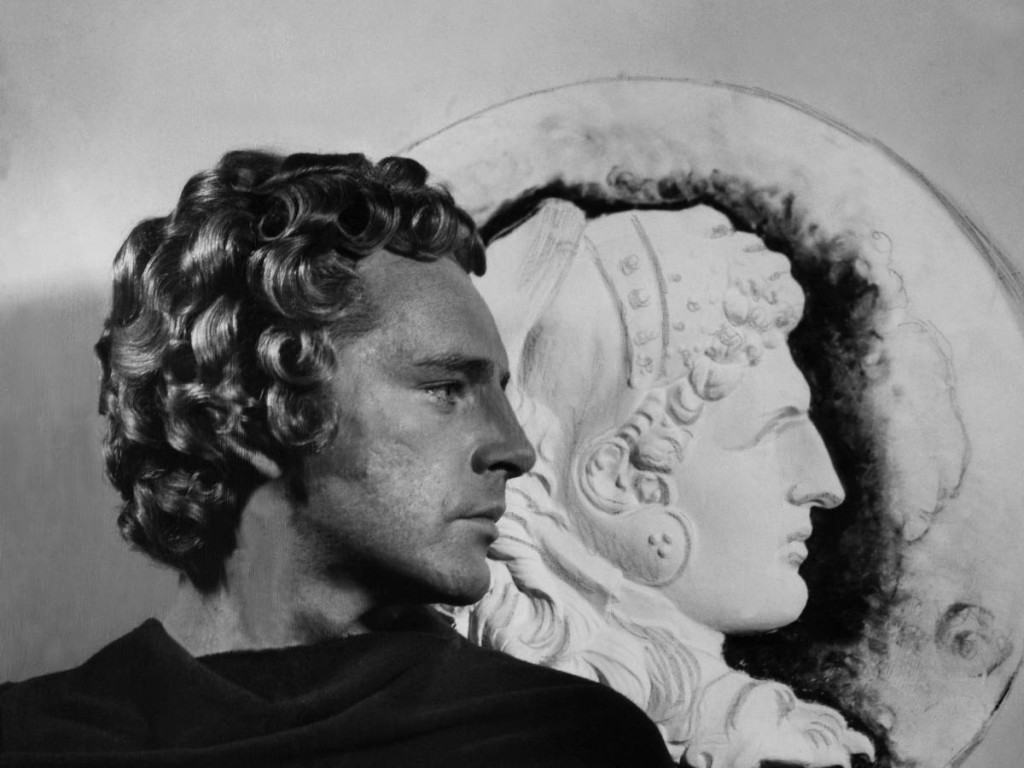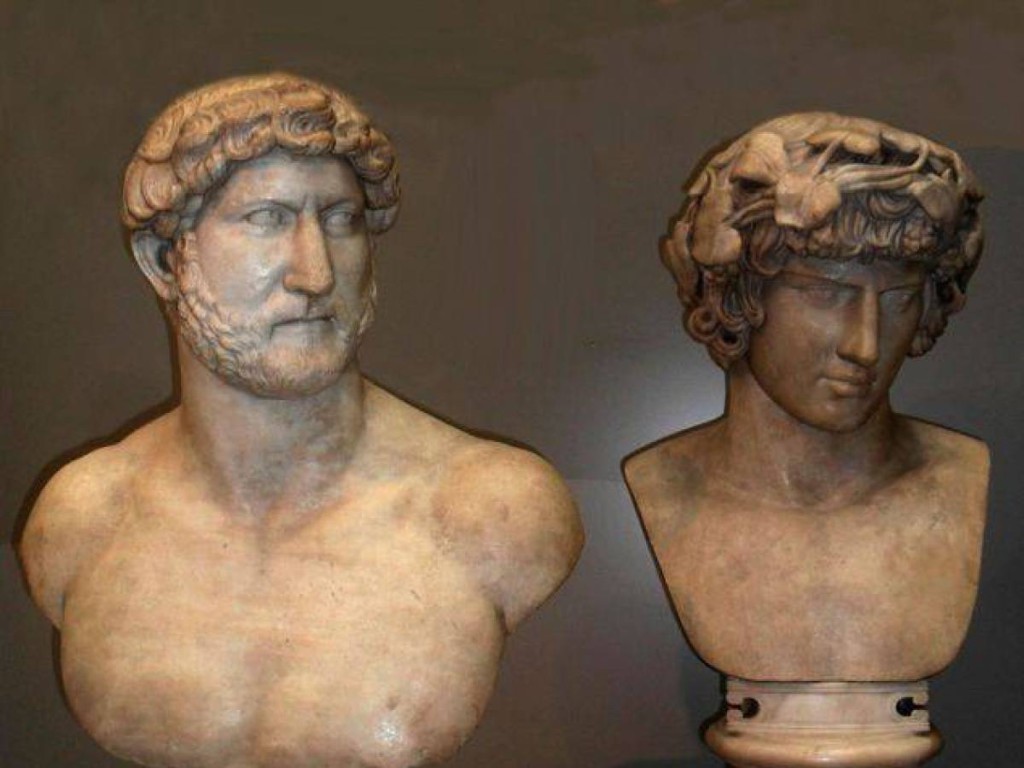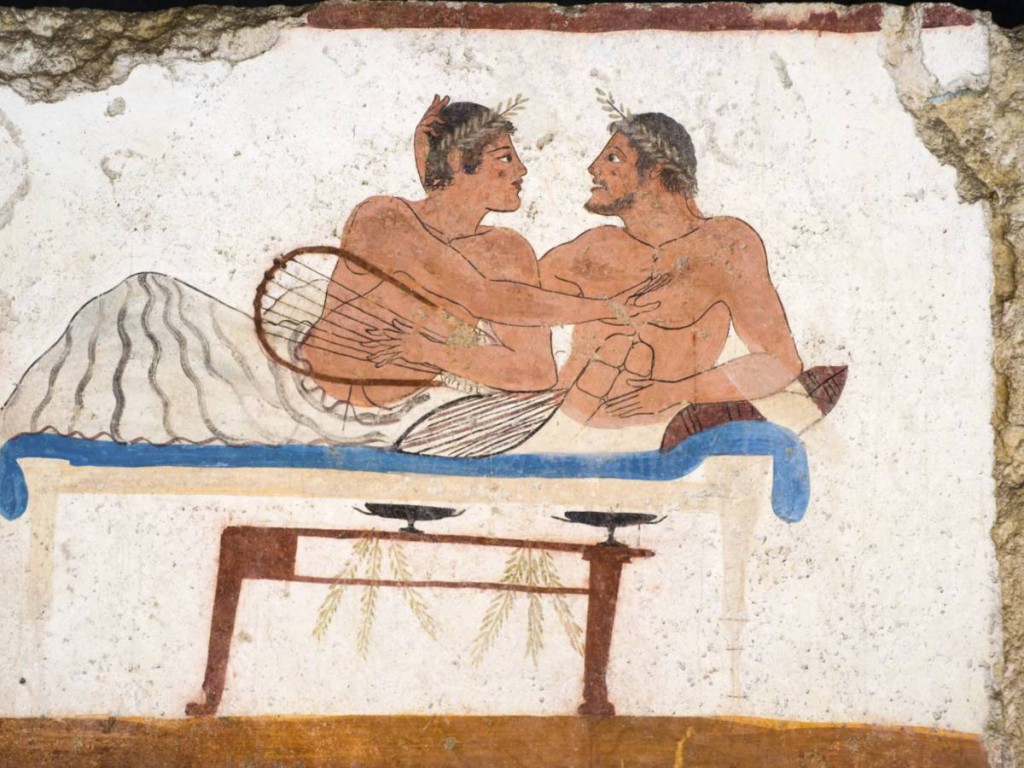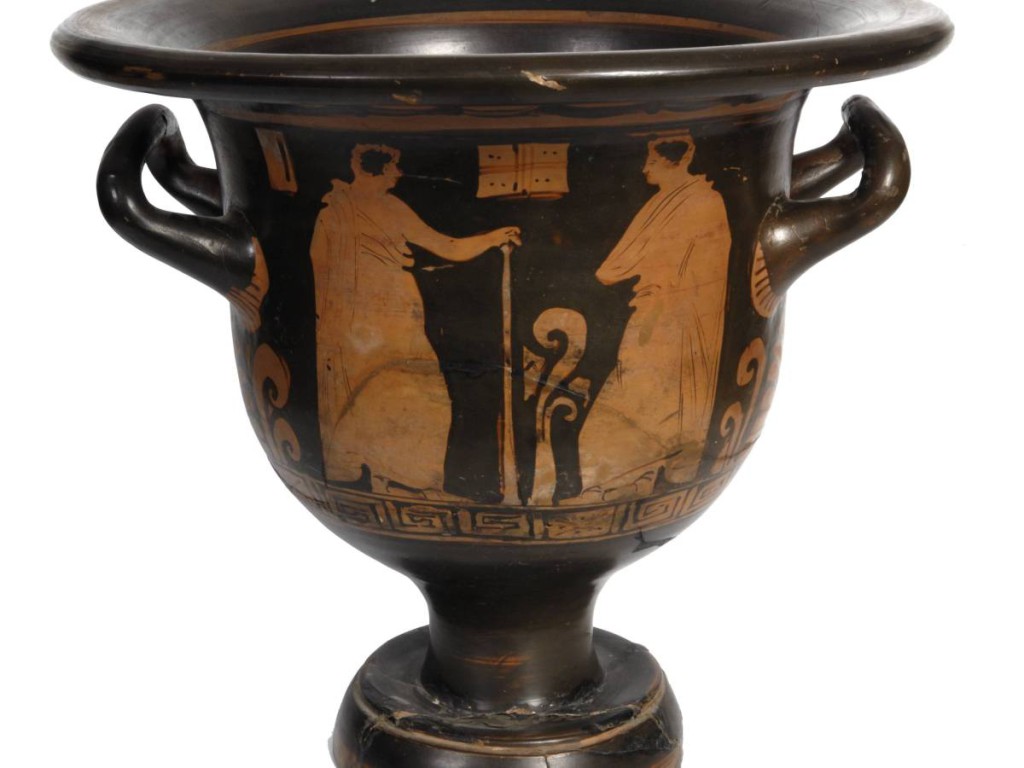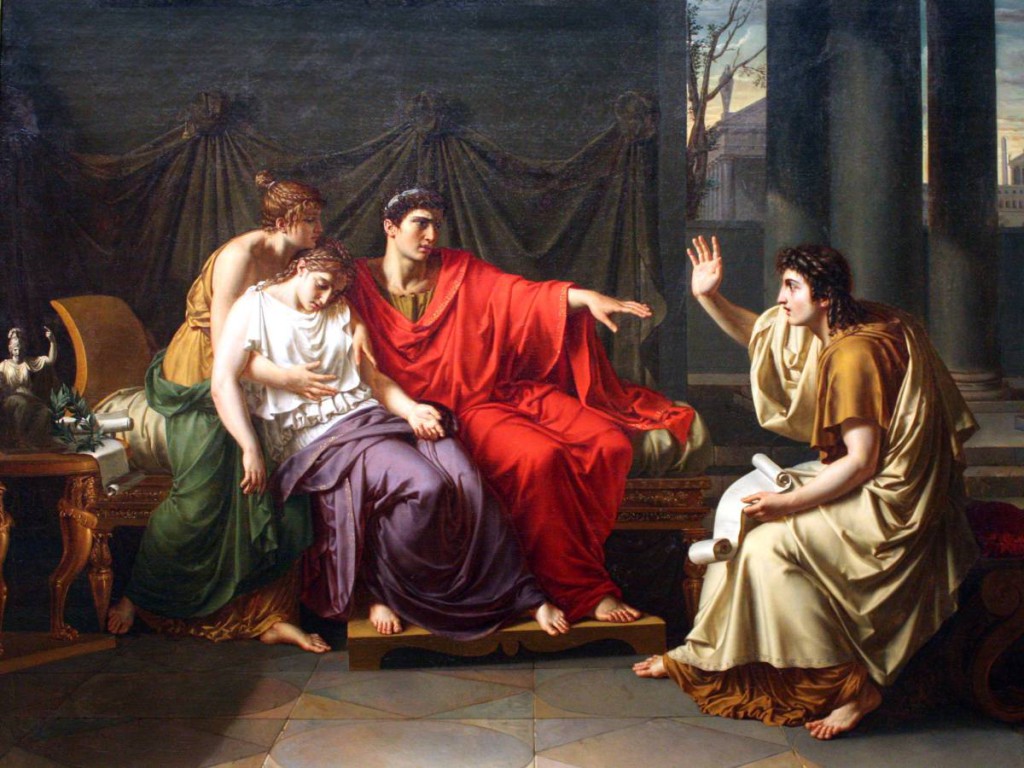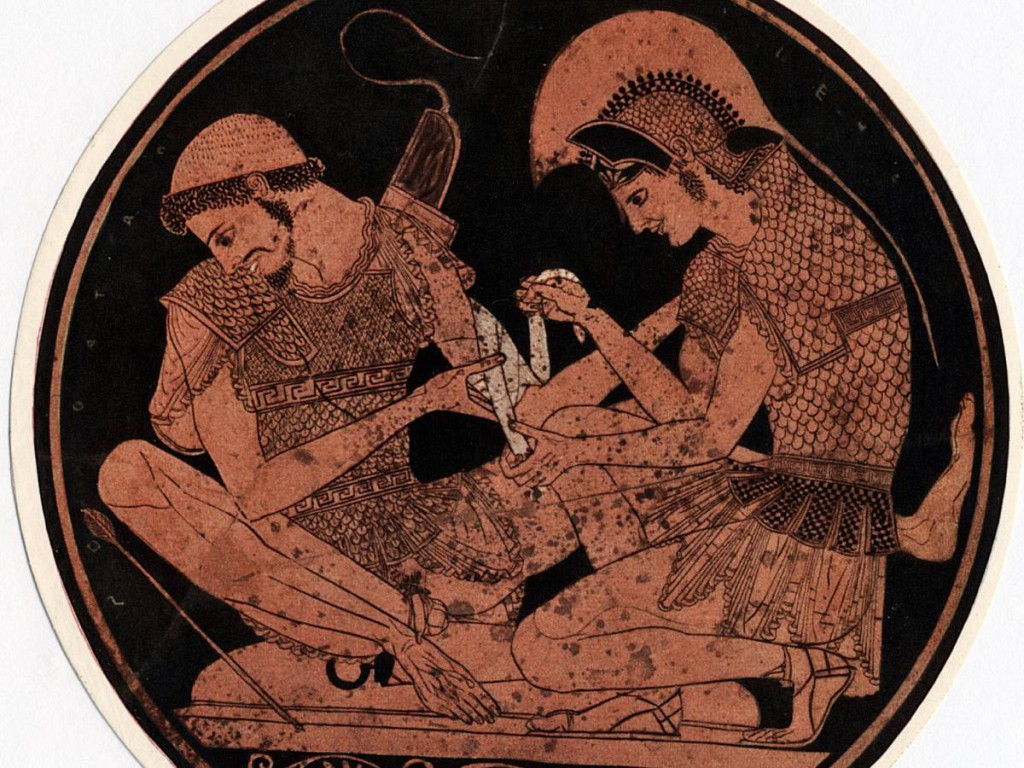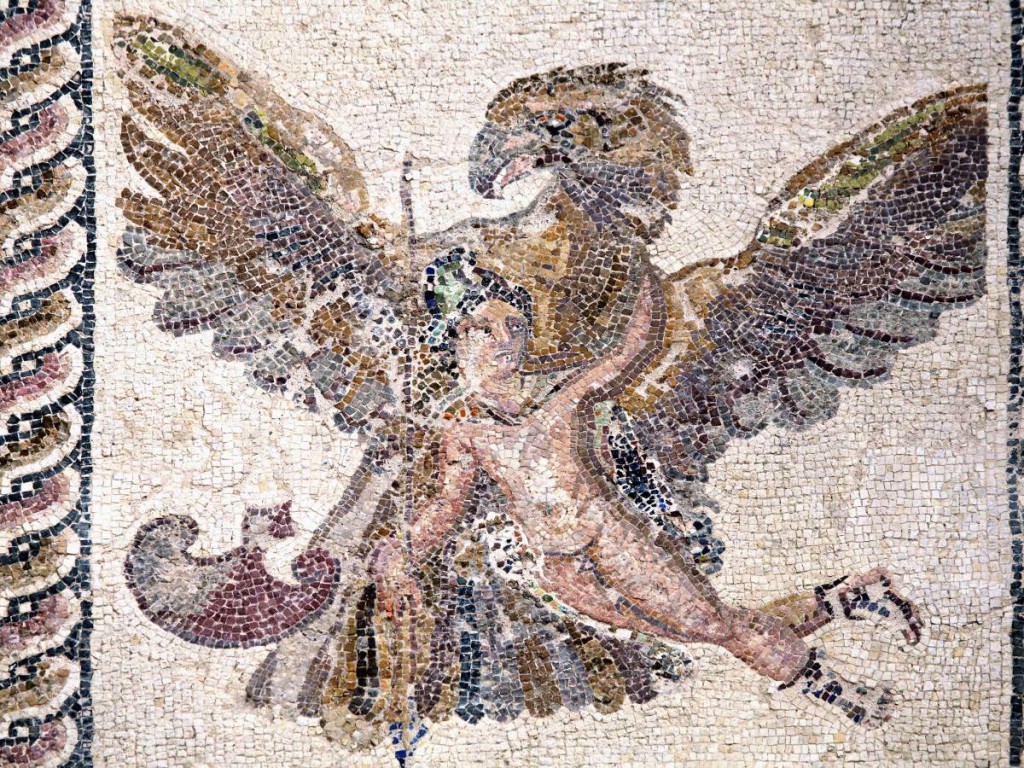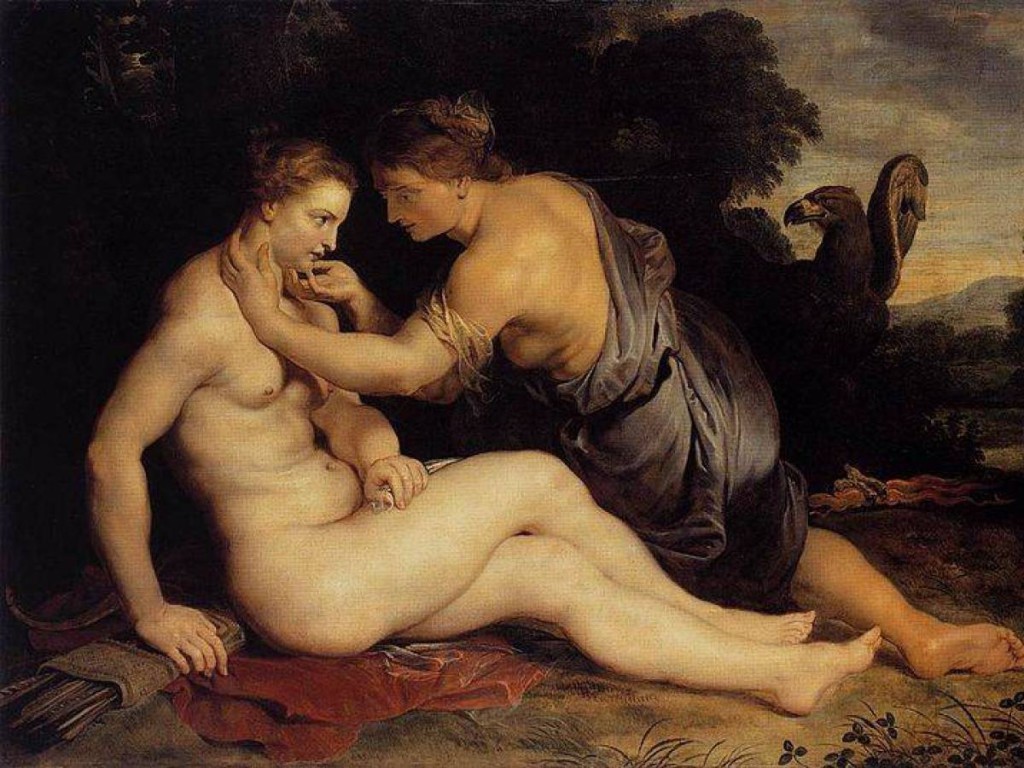11 Legendary Gay And Lesbian Love Affairs From The Ancient World
The romances of the ancient world weren’t all tales of straight love. The annals of the past are filled with stories of bi-sexual, homosexual, and other variations on open-minded relationships and passionate love affairs.
The very words for girl-on-girl romance date back to the renowned poet Sappho from the island of Lesbos. Her literary influence and focus on the beauty of romance in all forms between all combinations of genders eventually resulted in the terms “sapphic” and “lesbian.”
Sappho herself was most likely bi-sexual. The few surviving fragments of her lauded poetry describe her attraction to both sexes. Her interest in the ladies has always been the focus of her legend however, eventually building into tales of an all-girls finishing school hosted by Sappho on her island. But Sappho also had a daughter named Cleïs by an unknown male lover.
Sixth century Athens was freed from a dictatorship courtesy of one gay love affair gone awry and another so committed, they’d kill for eachother.
The Athenian dictator’s brother and primary adviser Hipparchus were madly in love with Athenian playboy Harmodius. But Harmodius and his best friend Aristogeiton were already an item, so Hipparchus’ love went unrequited. Furious at being turned down, Hipparchus had Harmodius’ sister raped and Harmodius’ family disgraced. Harmodius and Aristogeiton assassinated Hipparchus in revenge, paving the way towards the downfall of his tyrannical family and its rule over Athens.
Alexander The Great and Hephaestion were inseparable best friends and lovers. They were educated together under the philosopher Aristotle and were trained together as warriors. When the young prince Alexander set out on his first adventures, Hephaestion was the chief of his body guards. As Alexander started accruing the pieces of his Empire, Hephaestion’s role transitioned. He became Alexander’s second in command, general and primary adviser. They even married a pair of sisters to further enhance their bond and stay together.
When Hephaestion was killed in battle, Alexander’s grief knew no bounds. He petitioned for Hephaestion to be granted divine status, installing his beloved in the ranks of the gods.
The worship of Hephaestion’s didn’t catch on. But the religion the Roman Emperor Hadrian set up for his male lover, Antinous, did.
Hadrian and his Greek boyfriend Antinous were constant companions on the Emperor’s decade long travels around the Roman Empire. When he died during a voyage on the Nile, Hadrian immediately had him deified and set up an organized cult to specifically worship him. They spread his worship throughout the eastern half of the Empire.
Open sexuality between both genders and disparate generations were a basic component of Socratic philosophy and the symposium in Athens where Socrates and his student Plato lectured.
Though it’s unclear if they had a thing for each other, Socrates and Plato both definitely had same-sex relations with others throughout their lives. Socrates most infamously wrote of his attraction to the youth Charmides and was later executed for his open love and open access education policies. Socrates death scared Plato straight. Plato’s later works and stances on homosexuality are remarkably different and a teensy bit homophobic compared to his earlier interests.
Agathon was Athen’s most infamous cross-dresser. The historically gorgeous Agathon typically appeared at the Athenian symposium in female dress, wowing the philosophers and playwrights into namedropping him into almost all of the literary art that came out of late fifth century Athens. He’s mentioned in everything from Plato’s “Symposium” to the plays of Aristophanes.
Always at his side was his quieter lover, the mysterious Athenian youth Agathon.
The poet Virgil wrote several philosophic treatises on homosexual love, but his greatest romantic work wasn’t as abstract. He penned the epic action saga of the Trojan hero Aeneas in honor of his patron and unrequited beloved, the first Roman Emperor Augustus.
Yes. That’s right. One of the greatest pieces of Western literature ever written is basically a lengthy love poem from an out of the closet man to his historically hetero friend. Virgil actually died before his masterpiece was finished, leaving behind the last wish that it be burned. Augustus overruled Virgil’s wishes and had it published anyhow.
The mortal homosexual love of the day was mirrored in the myths of ancient Greek and Roman gods and heroes. Often one of the ways historians have been able to identify the nuances of these subtle relationships between the real men and women of the past is through the then-contemporary comparison between the historical couple and mythological affairs.
Alexander and Hephaestion routinely compare themselves to the ancient Greek warrior heroes, best friends, and lovers Achilles and Patroclus. Tragically, the ancient Homeric legend mirrored the historic one. Patroclus died before Achilles, just as Hephaestion died before Alexander.
Though the ’90s television show downplayed the relationship between its main characters, the legendary hero Hercules and his sidekick Iolaus were a lot more than just friends.
Iolaus was Hercules’ nephew and lover. Iolaus was actually the de facto god of gay couples in certain Greek city-states. The city of Thebes even had a special shrine in his honor where male couples could leave offerings to their patron.
The ancient Greco-Roman pantheon is filled with tales of LGBTQ romance. Few, if any, of the gods were “straight.”
Zeus, the king of the gods, didn’t just like guys and girls, he specifically liked them to be quite young. His interest mirrored the social customs of ancient Greece and Rome whereby older men had younger boys as sexual companions. Zeus’ longest lasting affair in Greek mythology is with the Trojan prince Ganymede. Zeus kidnapped the beautiful youth in the form of an eagle and kept him in his home on Mount Olympus as his eternal cabana boy and “cup-bearer.”
The nymph Callisto left behind a human princess-ship, vowing never to sleep with men as part of the pledge that sealed her to the roving forest court of nymphs and the bi-sexual goddess Artemis.
Artemis’ father, Zeus, was able to use her set-up to seduce several of Artemis’ girlfriends, including Callisto. Disguised as Artemis, Zeus slept with the unsuspecting Callisto, leaving her pregnant and in disgrace with the real Artemis. Zeus’ jealous wife Hera exasperated Callisto’s plight by turning her into a bear. When Callisto and Zeus’ human son Arcas inadvertantly killed her while hunting, Zeus turned them both into constellations in memorium to one of the most convoluted affairs in mythological history.

